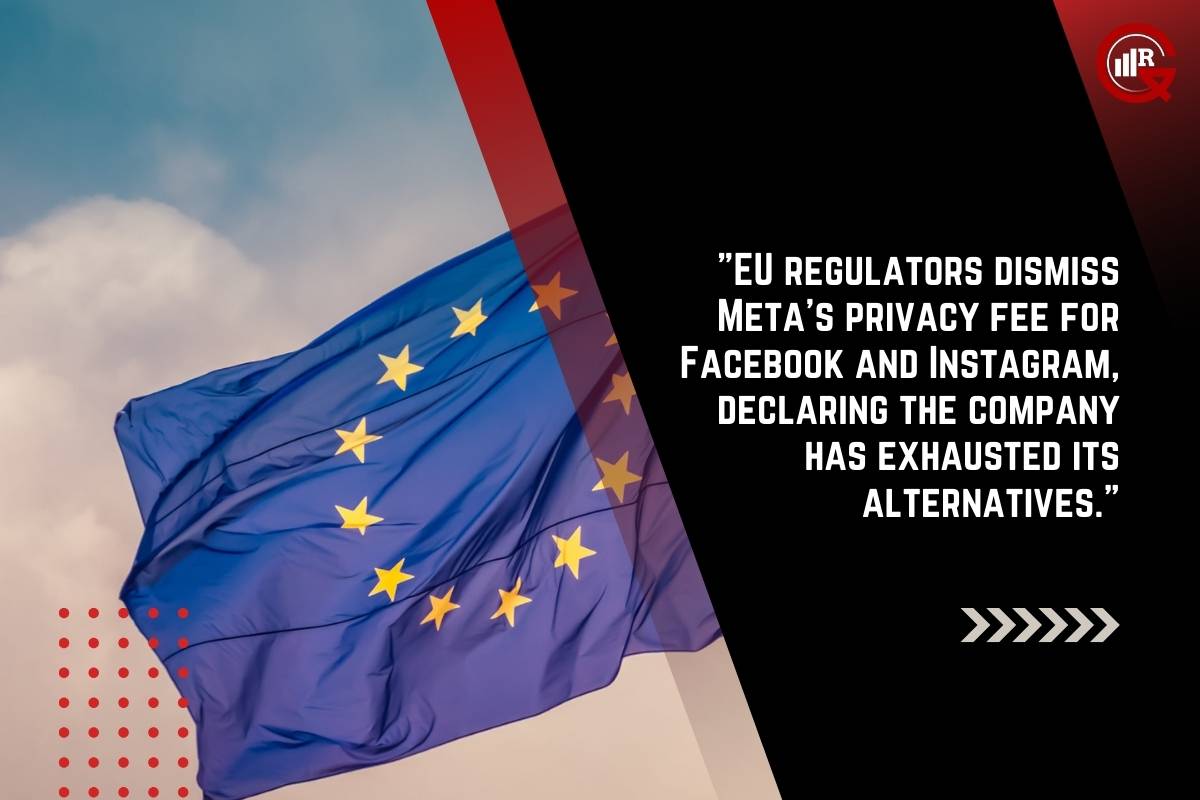(Source-theregreview.org)
Meta’s attempt to charge European users of Facebook and Instagram for opting out of ad tracking seems to have hit a roadblock. Introduced late last year in response to a significant ruling by the EU’s highest court, Meta’s subscription model aimed to address concerns raised by privacy advocates. However, critics quickly pointed out that this approach failed to offer genuine consent, as users were essentially forced to pay a monthly fee to protect their privacy.
Originally priced at €12.99 ($13.82) for accounts used on both mobile and web, Meta recently proposed reducing the fee to €5.99 to appease critics. Nonetheless, the European Data Protection Board (EDPB), representing the EU’s privacy regulators, has sided with privacy advocates who derisively dubbed Meta’s approach as “pay or okay.”
The EDPB’s opinion, published following Politico’s report, emphasized that offering users only a binary choice between consenting to data processing for behavioral advertising or paying a fee does not constitute valid consent. According to EDPB Chair Anu Talus, such models fail to provide users with a genuine choice, leading many to unknowingly consent to data processing without understanding the implications.
Charging pages for reach and engaging in contextual ads
Austrian activist lawyer Max Schrems, known for his legal battles against Meta spanning over a decade, stated that Meta now has no choice but to offer users a clear option to opt in or out of personalized advertising. While Meta still has other revenue avenues, such as charging pages for reach and engaging in contextual ads, Schrems emphasized the importance of obtaining explicit consent from users before tracking them for advertising purposes.
In essence, Meta’s options in the EU appear limited. The company must now rethink its approach to user consent and privacy, ensuring that users are provided with transparent choices regarding their data. As regulatory scrutiny intensifies and privacy concerns continue to mount, Meta faces increasing pressure to align its practices with evolving standards of data protection and user rights.
Moreover, Meta’s woes in the EU underscore broader challenges faced by tech giants regarding data privacy and regulatory compliance. The company’s struggles reflect growing calls for stronger data protection measures and greater transparency in the digital ecosystem.
Clearer information about data collection practices
The EDPB’s stance signals a potential shift towards stricter enforcement of data protection laws, with implications not only for Meta but for the entire tech industry. As regulators crack down on practices deemed invasive or non-compliant, companies will need to reassess their data handling procedures and prioritize user privacy.
Furthermore, Meta’s difficulties highlight the complexities of balancing business interests with ethical considerations and legal obligations. While personalized advertising remains a lucrative revenue stream for tech companies, the pushback from regulators and privacy advocates underscores the need for a more user-centric approach to data management. In response to mounting scrutiny, Meta may face pressure to implement more robust privacy controls and transparency mechanisms. This could involve providing users with clearer information about data collection practices, enhancing consent mechanisms, and empowering users with greater control over their personal information.






